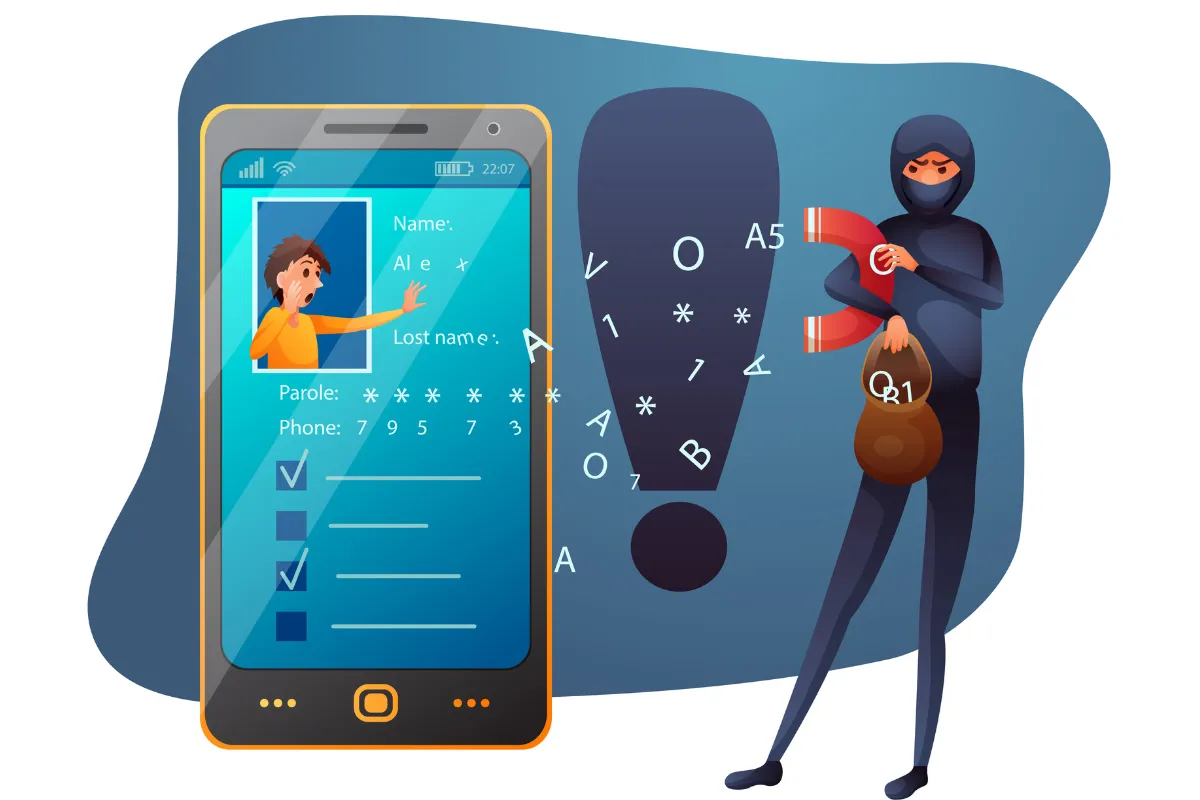Identity theft is a serious crime where someone steals your personal information, like your Aadhaar card number or bank account details, to commit fraud. This can have a devastating impact on your finances, credit score, and even your reputation.
How Thieves Steal Your Information
Thieves can obtain your information in various ways, both offline and online. Here are some common methods:
- Stealing physical documents: This includes rummaging through trash for bank statements or credit card slips.
- Hacking: Thieves can hack into computers or networks to steal personal information.
- Phishing: They may send deceptive emails or text messages pretending to be from a legitimate source, tricking you into revealing personal information.
- Malware: This is software that infects your computer and steals your data.
- Social media: Thieves can gather information from your social media profiles.
Types of Identity Theft
There are different types of identity theft, each targeting specific information:
- Financial identity theft: This is the most common type, where thieves use your information to open new accounts, make unauthorized purchases, or get loans in your name.
- Medical identity theft: Thieves use your information to get medical services in your name, leaving you with unexpected medical bills.
- Child identity theft: Children are especially vulnerable as they often don’t have established credit. Thieves can use their information to open accounts or get benefits.
- Tax identity theft: Thieves file a tax return in your name to claim a fraudulent refund.
Signs of Identity Theft
Be vigilant and look for these signs that you might be a victim:
DON'T MISS
- Unfamiliar charges on your bank or credit card statements.
- Receiving credit cards you didn’t apply for.
- Errors on your credit report, such as accounts you don’t recognize.
- Medical bills for services you didn’t receive.
- Calls from debt collectors about debts you don’t owe.
Protecting Yourself from Identity Theft
Here are some steps you can take to safeguard your information:
- Be cautious about sharing personal information online and offline.
- Use strong and unique passwords for all your accounts.
- Monitor your bank statements and credit report regularly.
- Shred any documents containing personal information before disposing of them.
- Consider using a credit monitoring service.
What to Do If You’re a Victim
Identity theft can be a scary situation, but here’s what you can do to take charge and minimize the damage if you find yourself a victim in India:
- Report the Identity Theft:
- File a police complaint: Head to your nearest police station and file a First Information Report (FIR) explaining the identity theft. This report serves as a crucial document for further actions.
- Report to the National Cyber Crime Portal (NCCP): India has a dedicated portal to report cybercrimes, including identity theft. File a complaint on the NCCP website (https://cybercrime.gov.in/) for online identity theft.
- Secure Your Finances:
- Contact your bank(s): Inform your bank(s) immediately about the identity theft. Request them to freeze or close any accounts that you suspect have been compromised. Ask for new debit/credit cards with different PINs.
- Minimize Further Damage:
- Change your passwords: Update your passwords for all your online accounts, including bank accounts, email, social media, etc. Use strong and unique passwords for each account.
- Monitor your accounts: Regularly review your bank statements and credit reports for any suspicious activity. You can get a free credit report once a year from each credit bureau.
By being aware of identity theft, taking preventive measures, and acting swiftly if you become a victim, you can minimize the damage and protect yourself financially.
